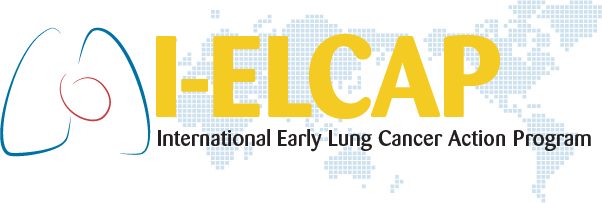Previous Meetings
The 4th International Conference on Screening for Lung Cancer
Friday, February 23, 2001 to Sunday, February 25, 2001
Weill Medical College of Cornell University
New York, NY
United States
Agenda: 4th Conference Agenda
Mission:
There is a broad interest in formulating the ideal regimen of screening for lung cancer for screening research and screening practice. The objective of this Conference is to attain consensus on such a regimen, pursue international collaboration to study the performance of this regimen and develop additional studies in the pursuit of further advancing the regimen.
Consensus Statement:
Since the first Conference 16 months ago, research initiatives and practice on lung cancer screening have continued to spread. The challenge from the Third Conference was to develop and present a protocol for collaborative assessment of the quantitative implications of lung cancer screening. This protocol was to specify those components of the screening regimen which were required for pooling of the data and those which were not required and thus left to the discretion of each participating institution. The participants continued to feel that an international consortium following a common protocol was highly desirable for rapid accumulation of information in research and for purposes of screening practice. To this end, an Advisory Board was formed with a broad representation of interested organizations in order to insure inclusive and productive collaborations, and it had its first meeting prior to the Fourth Conference.
A draft protocol for the collaborative effort, termed the International Early Lung Cancer Action Program (I-ELCAP), was presented in detail at the Fourth Conference. At the conclusion, there was acceptance of this protocol and a call for its publication.
The Conference adopted, without any notable amendments, the recommendations arising from its five working groups. One of these re-affirmed the tenability of the Early Lung Cancer Action Project (ELCAP) approach to research on lung-cancer screening, notably the distinction between research on early diagnosis and on the significance of early-diagnosed cases, the latter including the questions of the frequency of overdiagnosis and the curability of genuine malignancies by early intervention.
The group addressing indications for screening recommended that priority in screening research be given to smokers 45 – 54 years of age, as this conveys the greatest benefit for the screenees while research efficiency is better served by screening older smokers.
Peculiar to CT screening is detection of sub-solid (part-solid or non-solid) nodules presenting in the images as ‘ground-glass opacities.’ The working group addressing these focused on malignancies diagnosed in these sub-solid nodules, and it underscored the present need for collaborative research on both the diagnostic and prognostic issues surrounding malignancies in these nodules, especially research on the course of diagnosed malignancies when not resected. It was also recommended that the current staging for lung cancer be re-evaluated in light of CT screening findings.
Biomarkers may prove useful in both diagnosis and prognosis, and their potential was underscored by the working group devoted to this topic. The participants of this group saw it important that work on biomarkers be incorporated in the I-ELCAP; and they recommended the development of a formal Biomarker Working Group within the I-ELCAP, collaborating closely with other groups concerned with this topic.
Finally, the working group focusing on psychological and behavioral issues surrounding lung-cancer screening recommended development and implementation of an assessment battery directed to these aspects of I-ELCAP screening. In addition, it strongly recommended that all screening sites provide smoking-cessation advise following existing consensus guidelines.
